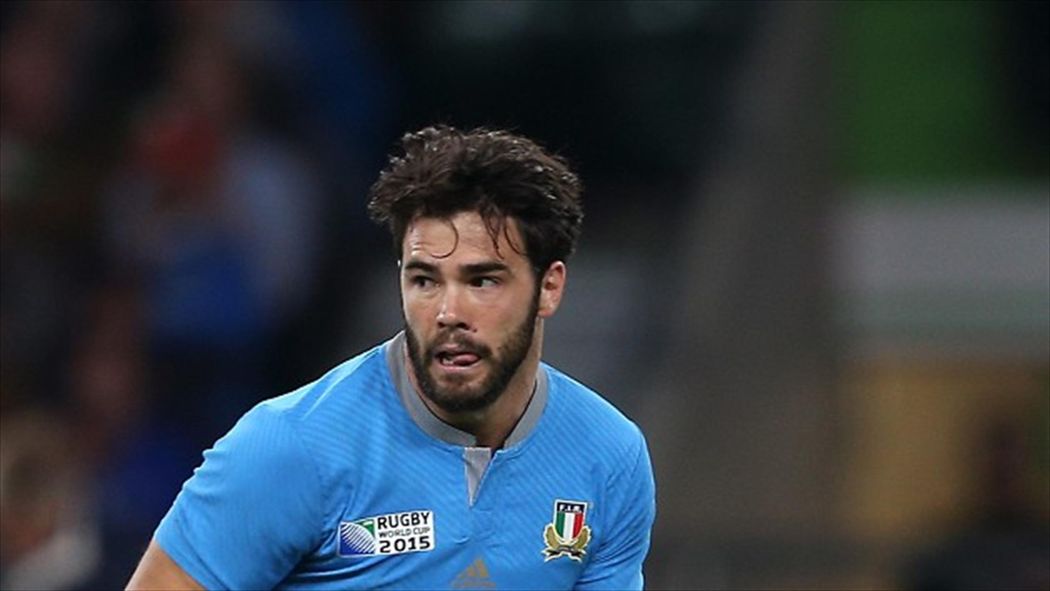The Olympics and the US Olympic Committee are super serious about doping. You can ask any athlete about it and they will be well familiar with getting early morning knocks at the door to relieve themselves into a cup for testing. Unfortunately for Nia Williams she found that out the hard way. Williams, who came into the program under former head coach Jules McCoy after a stellar summer with Life West, has been given a four year ban for testing positive for a couple of banned substances. She initially tested position in early November of last year and then tested positive again during the Dubai 7s.
Williams was given a provisional suspension back in December. TIAR became aware of the suspension back in April but decided not to report on it (more on that in a minute). Today the USA Anti-Doping Agency announced the formal four year ban. Williams has not been with the Eagles since the provisional ban back in December and was out of the Olympic picture all together.
Take the jump to read more.
Here is the technical details of the suspension from the USADA:
Granted, Williams was doping while part of the U.S. program. That is rugby related. However, the authorities have been aware of the incident since last year. Williams was booted from the team. It was the act of one player and not an entire team. When we learned about the incident back in April we were also made well aware that as a result of the positive test that both the men's and women's rugby teams have been subjected to additional testing. That's burdensome enough that then adding guilt by association isn't going to do anyone any good.
What Williams did was wrong. It's cheating, plain and simple, but it would be wrong to use that incident to cast a negative light on the rest of the U.S. rugby program. It was a personal choice that had personal consequences as well as consequences for her team. U.S.A. Rugby and the USOC deserve a lot of credit for not releasing anything publicly until the final findings were released and now that the facts are out there we can fully turn our attention to Rio.
Williams was given a provisional suspension back in December. TIAR became aware of the suspension back in April but decided not to report on it (more on that in a minute). Today the USA Anti-Doping Agency announced the formal four year ban. Williams has not been with the Eagles since the provisional ban back in December and was out of the Olympic picture all together.
Take the jump to read more.
Here is the technical details of the suspension from the USADA:
Williams, 22, tested positive for 19‐norandrosterone (“19‐NA”), and 2a‐methyl‐5a‐androstan‐3a-ol‐17‐one, metabolites of the prohibited anabolic agents nandrolone (or its precursors) and drostanolone, respectively, as the result of an out-of-competition test on November 6, 2015. Williams also tested positive for 19‐NA, drostanolone and its metabolite 2a‐methyl‐5a‐androstan‐3a-ol‐17‐one, as the result of an in-competition test on December 3, 2015, at the HSBC World Rugby Women’s Seven Series in Dubai in the United Arab Emirates.So why did TIAR not report on it when we became aware? From our perspective it was the selfish act of one player trying to give themselves an edge and not reflective of the entire program. We have long had a policy of not reporting on players personal lives or mistakes. That is not sport, that is is the stuff of tabloids. If these players were making millions of dollars and playing in publicly funded stadiums it would be a different story. The fact is that with very few exceptions all professional rugby players in the United States are average people that arguably make below average wages. It doesn't serve anyone any good to drag people's personal lives into the public sphere.
Granted, Williams was doping while part of the U.S. program. That is rugby related. However, the authorities have been aware of the incident since last year. Williams was booted from the team. It was the act of one player and not an entire team. When we learned about the incident back in April we were also made well aware that as a result of the positive test that both the men's and women's rugby teams have been subjected to additional testing. That's burdensome enough that then adding guilt by association isn't going to do anyone any good.
What Williams did was wrong. It's cheating, plain and simple, but it would be wrong to use that incident to cast a negative light on the rest of the U.S. rugby program. It was a personal choice that had personal consequences as well as consequences for her team. U.S.A. Rugby and the USOC deserve a lot of credit for not releasing anything publicly until the final findings were released and now that the facts are out there we can fully turn our attention to Rio.















